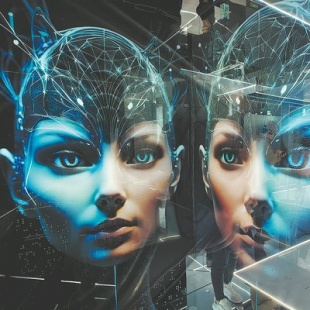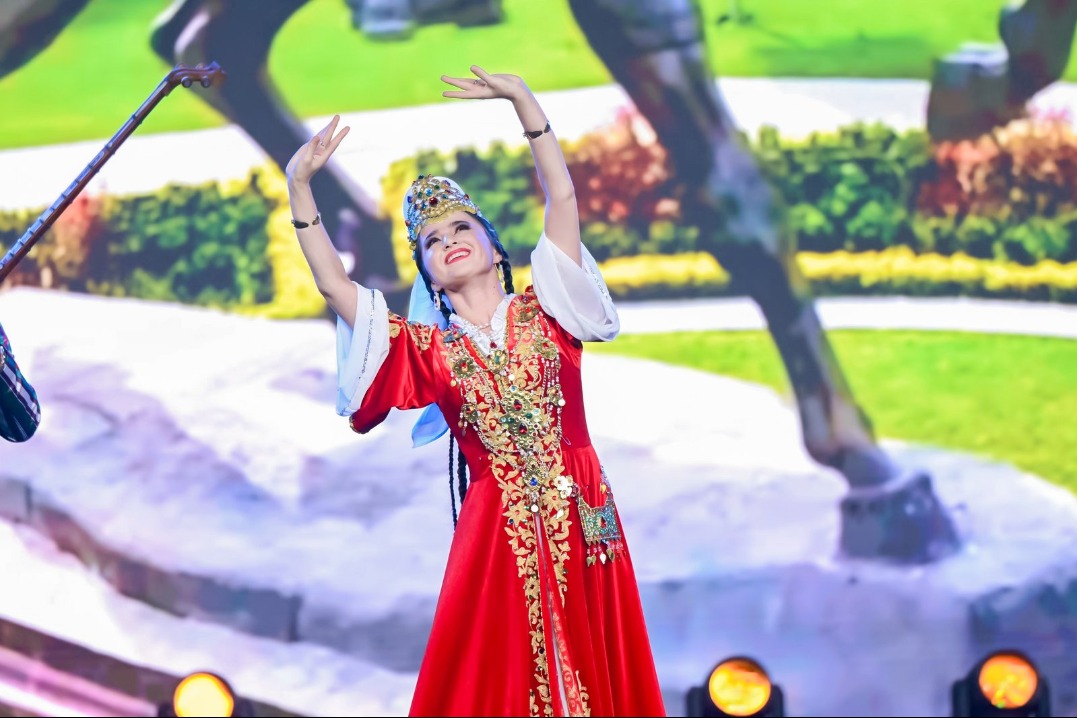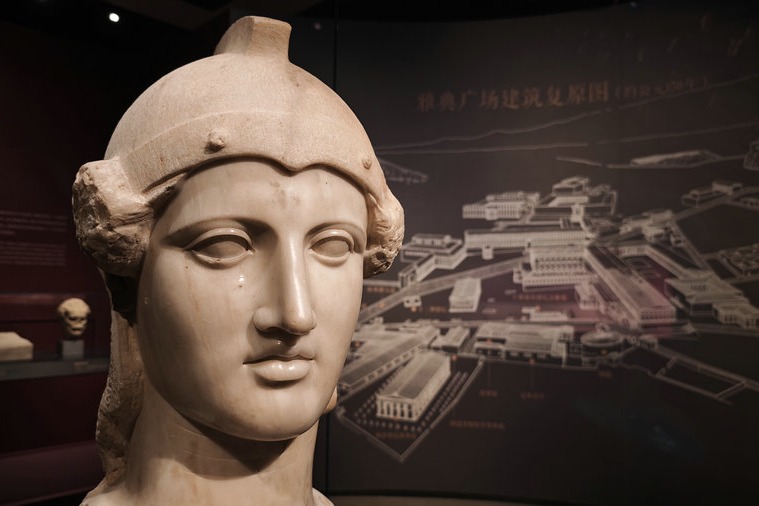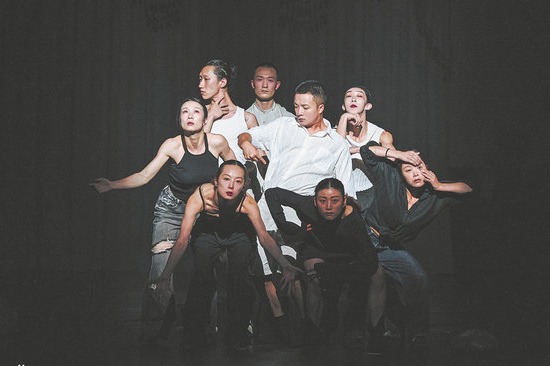Pen is still mightier than AI
Writers take a unified stand that though technology is powerful, it cannot beat humans' 'firsthand' experience, Yang Yang reports.

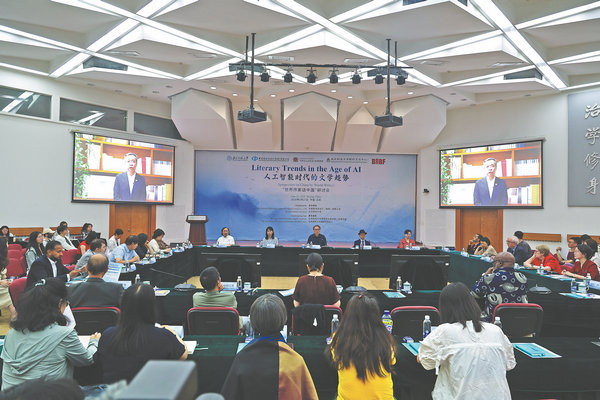
For a contemporary writer, the real crisis is not really AI, it is that readers are giving up their right to read and think, said Malaysian writer Li Zishu at a recent forum about Literary Trends in the Age of AI at Beijing Normal University.
Li said that she came across several posts on Xiaohongshu, or Red-Note, a social media platform, about her best-selling novel Liu Su Di (Worldly Land). To her surprise, she found that neither had she written some excerpts in those posts nor did they appear in her book.
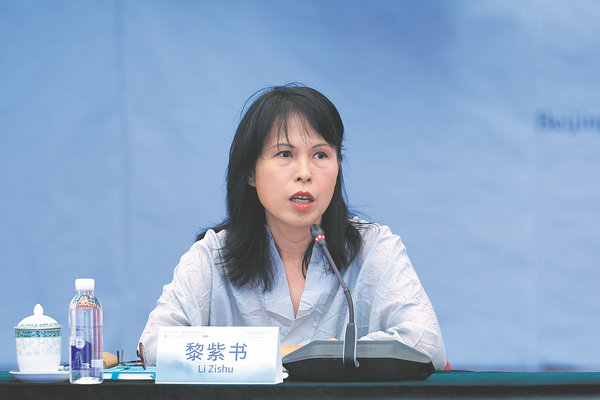
"When sharing their reading insights online, those bloggers are surprisingly relying on artificial intelligence to write for them. What's troubling is that they did not even notice that some of the quotes they were posting are not from the book at all."
The forum, a key event of the 31st Beijing International Book Fair in June, was held against the backdrop of the fast advancing artificial intelligence, which has urged many people to ask whether writers will be replaced by AI in the future.
Writers attending the forum, however, shared a unified stance: even as AI becomes more powerful, the role of the writer remains irreplaceable.
Li spoke about how working on a new novel became, for her, a symbolic act of resistance — a creative "war" she wages against artificial intelligence.
In the novel, she introduces an elderly woman whose husband has recently passed away. Initially, Li envisioned a plot where the husband is "revived" using AI technology to comfort the grieving widow. However, she soon realized that the old lady might desire a better "lover" than her late husband. This realization shifted the narrative. Li changed the storyline to involve a fraudulent scheme where a ring uses AI to create perfect lovers for scams. Later, Li restructured it again to turn it into a rivalry: a female novelist and AI compete to craft the ideal lover for the same woman.
"In writing this novel, I — as an author — am essentially declaring war on AI, challenging to see which of us can design an artificial lover that truly lives in the heart of a real woman," she said.
Although AI has beaten humans in chess, "literary writing is, after all, not chess — not a step-by-step process. The dimensions of the human heart, its complexity, far surpass that of a chess game," she said.
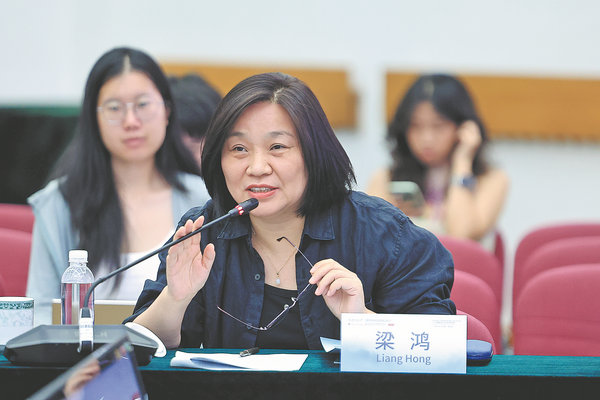
Chinese writer Liang Hong shared a similar sentiment, saying the rise of AI actually pushed her to work harder on her writing.
At the beginning of the year, when AI tool DeepSeek ignited a craze as it seems to be able to write whatever users order, from ancient poetry to modern fiction, Liang said she, however, felt a strong sense of rebellion.
"All of a sudden, I felt a compelling need to write with excellence and portray people with depth and authenticity," she said.
At that time, she was working on portraying a person and all of a sudden, she felt a closer and more profound spiritual bond with the individual.
"Why did I react so strongly, feeling the urge to work harder at writing and to portray a living, breathing person?" she asked herself.
"It was because I believed that while technologies like DeepSeek or ChatGPT might be able to swiftly sift through vast amounts of data to create something, the essence of living individuals and a dynamic society is organic and ever-changing. This complexity demands thoughtful reflection and insight that only humans can provide."


